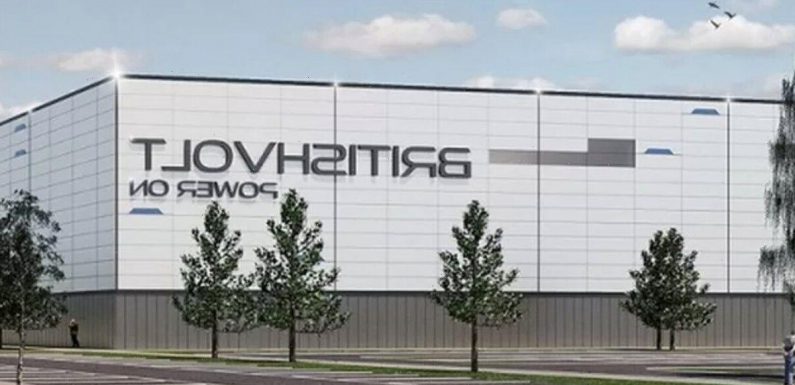

Australian firm Recharge Industries appears to have handed a lifeline to the UK’s electric vehicle (EV) prospects after buying collapsed Britishvolt out of administration. UK-based start-up Britishvolt had been planning on building a £4billion battery plant for EVs (Gigafactory) in Blyth, Northumberland. But the firm collapsed and fell into the hands of administrators last month after running out of cash.
EY, Britshvolt’s administrators, said that Britishvolt has now been sold to the Australian start-up for an undisclosed sum.
The plans for the UK’s first major battery-producing plant were deemed to be a crucial marker of Britain’s technological strengths. But the failure to set one up raised concerns over Britain’s industrial strategy ahead of a looming 2030 ban of new petrol and diesel cars.
According to British research body The Faraday Institution, the UK will need up to 10 high-volume battery manufacturing facilities, or gigafactories, to meet its aims.
The Northumberland site also sits in a key area in the Red Wall and former Prime Minister Boris Johnson championed Britishvolt’s plans as part of the “levelling up” agenda.

Who is Recharge?
Now, Recharge has brought back the prospect of a UK-based manufacturing site for the production of batteries for high-volume carmakers.
But with Britishvolt’s downfall blamed on a lack of battery experience, proven technology, customers and revenue, there could be concerns that Recharge may run into the same problems.
The company is run and owned by a New York-based investment fund called Scale Facilitation.
Despite the conerns, David Collard, the fund’s chief executive, claims Recharge can help Britain become a “major player in the international battery market” and admits he wants to get started “as soon as possible.”

He said: “Our proposal combined our financial, commercial, technology and manufacturing capabilities, with a highly credible plan to put boots and equipment on the ground quickly.
“Our technology – including an exclusive license for the intellectual property and battery technology – has been developed and validated over the last decade through C4V in the US and will be the backbone of both gigafactories in Geelong and Cambois.”
The company now plans to begin focusing on batteries for energy storage and aims to have those products available by the end of 2025. After this, it plans to then begin producing batteries for high-performance sports cars. This is slightly different to Britishvolt’s original plan of making power batteries for 300,000 vehicles a year.
Mr Collard continued: “Backed by our global supply chain, strategic delivery partners and a number of significant customer agreements in place, we’re confident of making the Cambois Gigafactory a success and growing it into an advanced green energy project. We can’t wait to get started and want to start as soon as possible.”
DON’T MISS
Elon Musk issues ‘WW3’ warning after dealing Ukraine blow with ban [REPORT]
EU shamed as Biden’s energy aide says ‘no apologies’ over trade war [REVEAL]
Man unearths family’s buried treasure from WW2 after following map [INSIGHT]

Britishvolt’s Blyth-based plant was expected to employ around 3,000 people when operating at full capacity. But its collapse led to hundreds of redundancies. Now, the remaining employees are set to transfer to Recharge as part of the latest deal.
There are also hopes that a new site built by Recharge could create up to 8,000 jobs on-site and in the supply chain.
Mr Collard said: “The North East of England has a real depth of history and talent in manufacturing and engineering. I recently spent time in the area to get to know the people and the site, and I was struck by the similarities to our Recharge Industries™ site in Geelong, Australia.
“I was really taken by the passion and pride that the people have for the region and their determination to get behind a project that can drive lasting change. We have the right plan in place, to match and support the region’s energy and ambition to become a major player in the international battery market. ”
Currently, Britain only has one battery plant which is Chinese-owned and is next to Nissan’s factory in Sunderland.
Source: Read Full Article